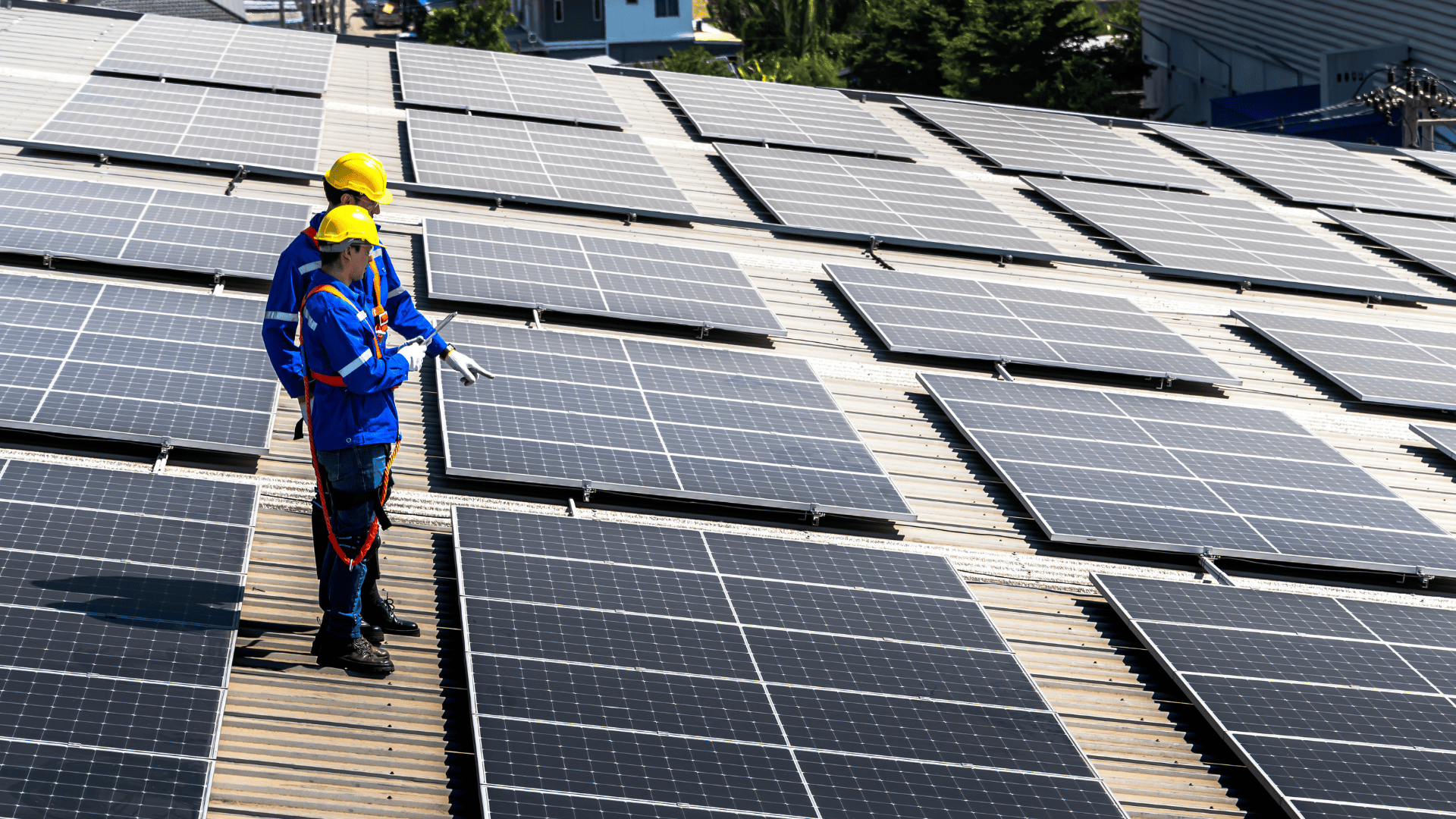July 6, 2023
In today's world, where energy consumption is increasing exponentially, the need for sustainable and renewable sources of energy has become more urgent than ever. Solar power is a promising solution to this problem, as it harnesses the power of the sun to generate electricity.
While solar power has many advantages, such as being a renewable and sustainable energy source, it also has its drawbacks, including installation challenges and intermittency issues.
In this blog, we will take a comprehensive look at some solar energy advantages and disadvantages to understand its potential as a clean and reliable energy source for the future.
What do you mean by Solar Power?
Solar power refers to the conversion of sunlight into usable electricity through the use of solar panels or photovoltaic cells. Solar panels absorb the energy from the sun and convert it into direct current (DC) electricity, which can then be converted into alternating current (AC) electricity through an inverter.
Solar power is a renewable and sustainable source of energy that produces no greenhouse gas emissions and has the potential to revolutionize global energy systems.
Advantages of Solar Power
Solar panel system offers a sustainable and reliable source of energy that can help to reduce carbon footprint and lower energy costs, while also promoting energy independence and diverse applications.
Solar power has numerous advantages, including:
Renewable and Sustainable Energy Sources
Solar energy is a renewable and sustainable energy source that is available in abundance. It is an inexhaustible source of energy that can be harnessed for electricity generation without depleting natural resources.
Reduced Greenhouse As Emissions
Solar power generation produces no greenhouse gas emissions, which helps to mitigate climate change. It reduces reliance on fossil fuels, which are the primary source of greenhouse gas emissions.
Lower Energy Costs
Solar energy systems can reduce energy costs significantly over the long term. Once installed, solar panels generate no electricity bills, and the energy produced can be used to power homes, businesses, and other applications.
Diverse Applications
Solar power can be used for a wide range of applications, from powering small electronics to providing electricity for homes and large commercial buildings. It can also be used in remote areas without access to the power grid.
Energy Independence
Solar power can help to reduce dependence on oil and natural gas to produce electricity. It can also provide energy security during power outages and emergencies.
Disadvantages of Solar Power
Despite the numerous advantages of installing solar panels and solar cells, there are several solar energy disadvantages too.
The disadvantages of solar power highlight the need for continued innovation and investment in solar technology to overcome these challenges and realize its full potential as a sustainable and reliable energy source.
Initial Cost and Installation Challenges
Solar panels can be expensive to install resulting in a time lag of many years for savings on energy bills to match initial investments. For a homeowner wishing to install solar panels in their house in the U.S., the average cost for a typical system is around $20,000.
The installation process can also be challenging, as it requires specialized knowledge and equipment. Solar energy storage is expensive too.
Intermittent Energy Source
Solar power generation is dependent on sunlight, which means that it can be intermittent and unpredictable. Energy storage systems can help to mitigate this issue, but they can also be expensive.
Land and Space Requirements
Solar panels require a significant amount of space to generate large amounts of electricity, which can be a challenge in densely populated areas. This can also lead to land use conflicts and concerns about environmental impact.
Environmental Concerns
While solar power is a clean and renewable energy source, the production of solar panels can have environmental impacts. The manufacturing process can produce toxic chemicals and waste, and the disposal of panels can also be challenging.
Energy Storage Challenges
Energy storage systems, such as batteries, are essential for ensuring a reliable supply of electricity from solar power. However, these systems can be expensive, and the technology is still developing, which can lead to performance and reliability issues.
Comparison with other Energy Sources
Solar power has several advantages over traditional sources of energy, including being renewable, sustainable, and environmentally friendly. While other sources of energy, such as fossil fuels and nuclear power, have their advantages, they also have significant drawbacks that solar systems can help to overcome.
Fossil Fuels
Fossil fuels, such as coal and oil, are the primary sources of energy worldwide. However, they are non-renewable and finite resources that contribute to climate change through greenhouse gas emissions.
In comparison, solar power is a renewable and sustainable source of energy that produces no greenhouse gas emissions.
Nuclear Power
Nuclear power is a low-carbon source of energy that can generate large amounts of electricity.
However, it also has significant safety concerns, as well as issues related to nuclear waste disposal. Solar power, on the other hand, is a safer and more environmentally friendly source of energy.
Wind Power
Wind power is another renewable source of energy that can generate electricity. However, wind turbines can be noisy and have an impact on wildlife, while solar panels are silent and have a smaller environmental footprint.
Wind power can also be intermittent and dependent on weather conditions, while solar power is more predictable.
Future Prospects of Solar Power
While there are still challenges to overcome, continued innovation and investment in solar technology are likely to result in significant growth in the solar power industry in the years to come.
The future prospects of solar power are bright, as it has the potential to become a leading source of renewable energy. The continued growth of solar power can be attributed to several factors, including:
Decreasing Costs
The cost of solar panels has been decreasing rapidly over the past few years, making solar power more affordable and accessible. As technology continues to improve, solar power is expected to become even more cost-competitive with traditional sources of energy.
Government Incentives
Many governments around the world have introduced incentives to promote the adoption of solar power, such as tax credits and subsidies. These incentives have helped to increase investment in solar power and make it more attractive to consumers.
Energy Storage Advancements
Energy storage systems, such as batteries, are essential for ensuring a reliable supply of electricity from solar power. Advances in battery technology are making energy storage more affordable and efficient, which can help to overcome the intermittency issues associated with solar power.
Growing Public Awareness
As people become more aware of the impacts of climate change and the importance of renewable energy, the demand for a solar system is likely to increase. This growing public awareness is expected to drive further investment and innovation in solar technology.
Conclusion
In conclusion, solar power is a promising solution to the growing demand for sustainable and renewable sources of energy. Despite its disadvantages, such as initial costs and intermittency issues, solar power offers numerous advantages, including being a renewable and sustainable source of energy that produces no greenhouse gas emissions.
With continued innovation and investment, solar power has the potential to revolutionize global energy systems and help to address the urgent need for a more sustainable and environmentally friendly energy future.
I agree to receive marketing messaging from Sunbase at the phone number provided above. I understand data rates will apply, and can reply STOP to OPT OUT.







